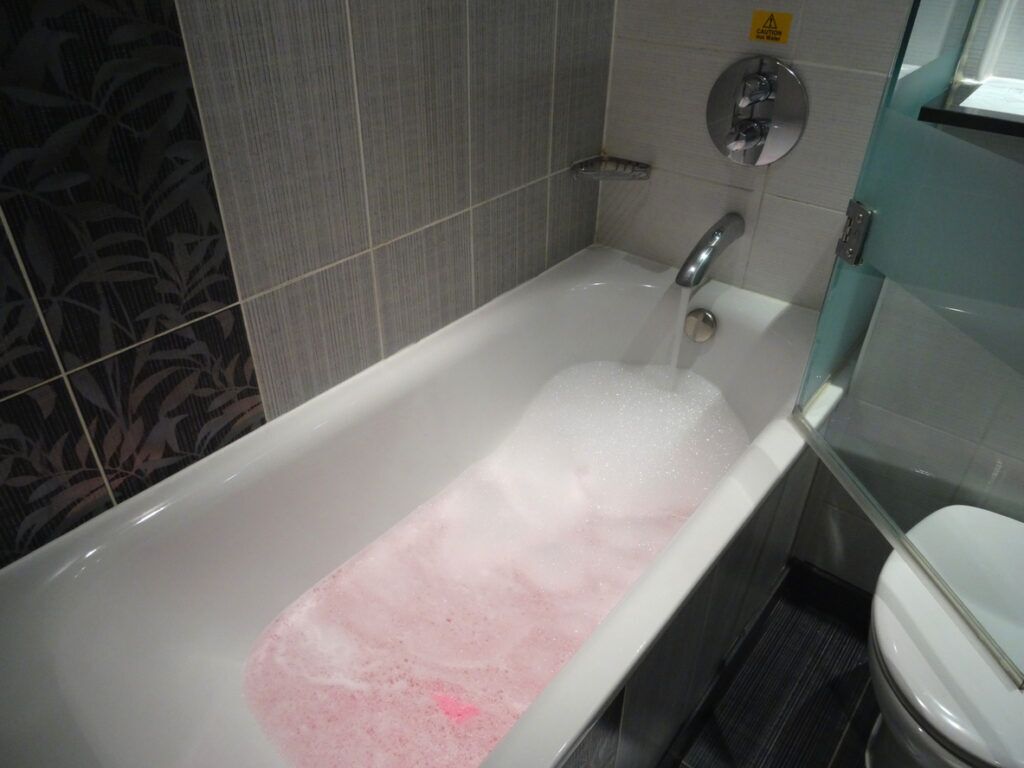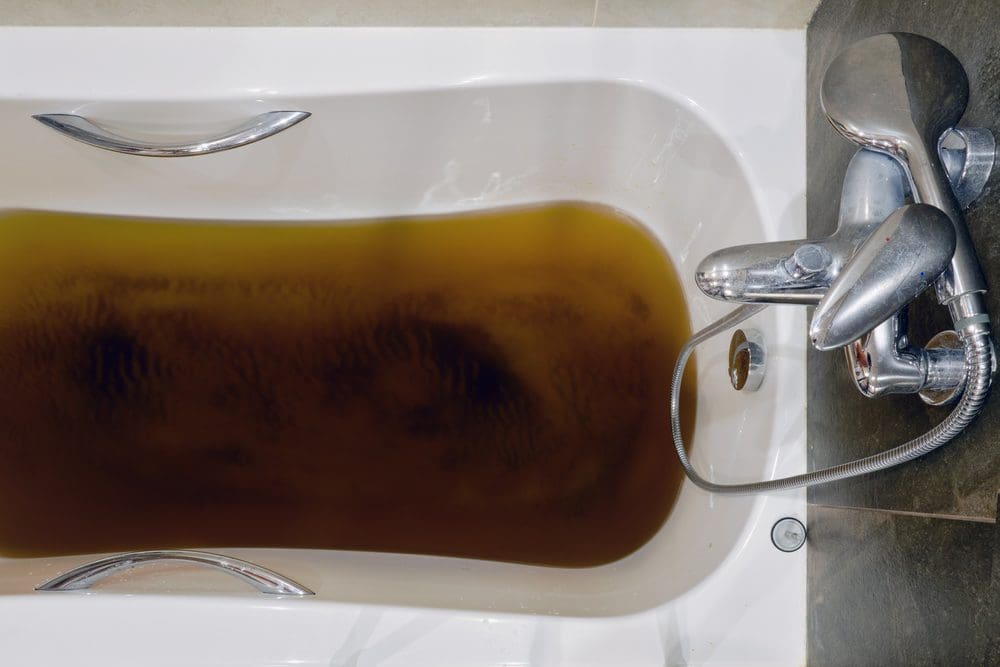The Comprehensive Guide: Waste Rising Through the Bathtub
The Comprehensive Guide: Waste Rising Through the Bathtub
Blog Article
The article further down on the subject of Why sewage is coming up through your bathtub is extremely engaging. Try it and make your own personal final thoughts.

Sewage back-up in the bathtub can be an upsetting and unhygienic issue for any property owner. Not just is it bothersome, however it additionally positions major wellness risks and indicates underlying problems with the plumbing system. Understanding why sewer is turning up via the bathtub is vital for taking proper action to resolve the problem efficiently.
Intro to the Problem
Usual Factors for Sewage Backup
Blockages in the Sewer Line
Among one of the most usual root causes of sewage back-up is an obstruction in the drain line. This can occur because of the build-up of debris, oil, or international items in the pipes, preventing correct flow and creating sewage to back up right into your bathtub.
Tree Root Breach
Tree roots seeking dampness and nutrients can infiltrate drain lines through small fractures or joints. In time, these roots can grow and broaden, causing significant damages to the pipes and bring about sewer backup problems.
Comprehending the Problem
When sewer draws back up right into the tub, it's a clear sign of a trouble with the water drainage system. The wastewater that needs to be moving far from your home is instead locating its way back into your space, which can bring about substantial damage and carcinogen.
Prospective Reasons
Several factors can add to sewage backup in the tub. From blockages in the sewage system line to problems with the plumbing framework, determining the origin is crucial for finding an option.
Aging Infrastructure
Older homes may have dated plumbing systems that are more prone to deterioration, splits, and degeneration. As pipes age, they become a lot more susceptible to leakages and clogs, raising the likelihood of sewage backup occurrences.
Heavy Rainfall or Flooding
During durations of heavy rainfall or flooding, the sewer system might come to be overwhelmed with excess water, creating backups and overflows. This can lead to sewer supporting into bath tubs and other components inside the home.
Indications of Sewer Backup
Foul Odors
Unpleasant smells emanating from drains or components, particularly in the restroom, may show sewer back-up issues. These odors are frequently strong and relentless, signaling an issue that needs instant interest.
Slow Draining Fixtures
Bathtubs, sinks, and toilets that drain pipes gradually or not in all could be experiencing sewer backup. If multiple fixtures are affected simultaneously, it's likely that the problem originates from a common point, such as the main sewage system line.
Gurgling Noises
Strange gurgling or gurgling sounds coming from drains when water is running elsewhere in your house are indicative of air entraped in the plumbing system. This air buildup can arise from sewer back-up and should be examined quickly.
Health And Wellness Threats Connected With Sewer Back-up
Contamination of Supply Of Water
Sewer back-up can infect the water system in your home, presenting a severe wellness threat to you and your household. Exposure to contaminated water can result in stomach concerns, skin infections, and other illnesses.
Mold and mildew Growth
Moisture from sewage back-up can produce perfect problems for mold growth in your home. Mold spores can aggravate breathing issues and cause allergies in sensitive people, making timely cleaning essential.
Spread of Condition
Sewage consists of dangerous bacteria, viruses, and parasites that can trigger a range of illness, including hepatitis, cholera, and gastroenteritis. Entering into contact with sewer or infected surface areas puts you in danger of infection.
Cleaning Up After Sewage Backup
Sanitation Procedures
Thoroughly sanitize and sterilize influenced locations after sewage backup to remove unsafe microorganisms and prevent mold development. Use ideal cleansing products and protective gear to make certain risk-free and effective cleaning.
Repair of Affected Areas
Fix any damage to flooring, walls, or components caused by sewer backup. Depending upon the extent of the damages, you may need to replace carpets, drywall, or various other products to recover your home to its pre-loss problem.
Immediate Actions to Take
Switching Off Supply Of Water
In the event of sewer backup, it's necessary to shut off the water to stop additional contamination and damage. Situate the primary water shutoff valve in your home and closed it off up until the issue can be dealt with.
Calling an Expert Plumber
Handling sewer back-up is not a DIY task. Get in touch with a qualified plumber with experience in taking care of sewage-related issues to assess the scenario and execute required repair work or clean-ups.
Preventing Contact with Polluted Water
Until the sewage back-up is resolved, avoid contact with polluted water to stop the spread of bacteria and pathogens. Use safety equipment if you have to remain in the damaged location and wash your hands thoroughly afterward.
Safety nets
Normal Maintenance of Drain Lines
Set up routine examinations and maintenance of your drain lines to identify and address possible concerns prior to they escalate into major troubles. This can consist of cleaning out particles, evaluating for tree root invasion, and fixing any type of broken pipelines.
Installing Backwater Valves
Think about installing backwater shutoffs in your plumbing system to stop sewage from flowing back into your home during periods of heavy rainfall or flooding. These shutoffs automatically close when water starts backing up, protecting your residential or commercial property from contamination.
Appropriate Disposal of Family Waste
Prevent purging anything apart from toilet tissue and human waste down the bathroom to prevent blockages and blockages in the sewer line. Dispose of oil, oil, and other home chemicals correctly to reduce the threat of plumbing issues.
Why Is Water Backing Up in My Bathtub When I Flush My Toilet?
What to do about a sewer line clog
First, don’t bother with plunging. No amount of plunging will dislodge the clog in a sewer line. The clog is too far away. Plungers are for clogs in the toilet itself, not the sewer line. Plus, the most likely causes of a sewer clog are:
Tree roots Flushed toys or feminine products Grease buildup Those items don’t move easily. And in the case of tree roots, the roots need to be cut out of the pipe and the pipe will need to be repaired.
You’ll need a closet auger. A closet auger is a type of plumber’s snake with a protective cover to keep from scratching the delicate porcelain toilet. If the clog is further down, you may need to remove the toilet or use one of your cleanouts to get to the clog.
We also recommend doing a video inspection of the drain to ensure that the cause of the clog has been completely removed. Otherwise, you could have the same problem again in a few days or weeks.
https://mspplumbingheatingair.com/blog/why-is-water-backing-up-in-my-bathtub-when-i-flush-my-toilet

I discovered that piece of writing about What to Do if Sewage Starts Coming Up Through Your Bathtub while scouting around the search engines. Loved our posting? Please share it. Help someone else find it. Kudos for being here. Come back soon.
Hire A Pro
Report this page